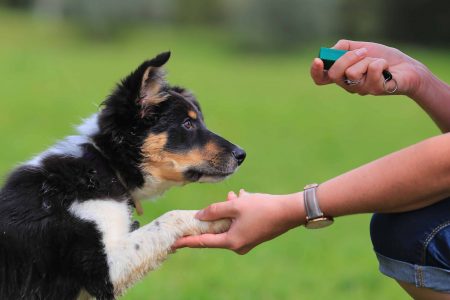« Back To All Resources

Pet Tips
Trust takes Time: Nurturing Your Pup’s Confidence

Safety Tips
- Keep Them Safe: Use baby gates to prevent escapes. Always use a leash or crate when traveling by car.
- Handle with Care: Some dogs may bite when scared. Gently wrap them in a towel or approach slowly and calmly. Never chase a scared dog—it will only make them more afraid.
In The Beginning
- Create a Safe Space: Set up a quiet area where your dog can explore at their own pace.
- Approach Gently: Don’t make direct eye contact. Crouch down slowly and offer your side. Avoid petting their head right away. Stop if they seem uncomfortable.
- Use Proper Equipment: Make sure your dog has a collar with ID tags. Use a leash to manage potty breaks.
Learning How To Trust
- Hand Feed: Feed your dog by hand to build trust. If they’re nervous, put the food down and back away.
- Quiet Time: Let your dog observe daily life from a safe space, like an exercise pen.
- Introduce Pets Slowly: Introduce other pets one at a time, and supervise all interactions.
- Role Model Dog: A calm, well-socialized dog can help show your new dog how to behave.
Training and Socializing
- Daily Socialization: Spend a few minutes every day helping your dog meet new people, pets, and experiences.
- Watch for Changes: If your dog’s behavior changes, check with your vet to rule out health problems.
- Go at Your Dog’s Pace: Don’t rush things. Let your dog adjust at their own speed.
- Leash Training: If your dog is scared of the leash, take it slow. Use treats to help them feel good about it.
- Teach “Touch”: Get your dog used to touching your hand by offering treats when they do. It helps them build trust and confidence.
With time, love, and patience, your undersocialized dog can learn to feel safe and happy in their new home. Every small step forward is a big win, so celebrate their progress! By going at their pace and using positive training, you’ll build a bond based on trust and love.
This handout is sponsored by Arfordable Dog Training
-
 Shy Dogs
Shy Dogs



